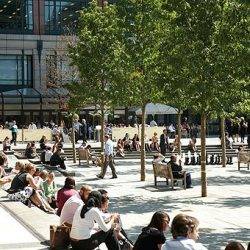July 16, 2018
New government estates strategy will see thousands of jobs relocate away from London
 The UK Government has announced it latest plans to save around £3.6bn over the next two decades by dramatically scaling back its property estate and relocating thousands of staff as part of its new 12 year estates strategy. The Cabinet Office has outlined the plans to move thousands of public sector jobs, including senior roles, out of London by 2030, reducing Whitehall buildings from around 65 to 20 over the same period. Around 20 so-called Government hubs will be set up in the regions by the end of this parliament in 2022. In total, the strategy commits to reducing the number of government-owned office buildings from 800 to under 200, with an estimated saving of £3.6bn over 20 years.
The UK Government has announced it latest plans to save around £3.6bn over the next two decades by dramatically scaling back its property estate and relocating thousands of staff as part of its new 12 year estates strategy. The Cabinet Office has outlined the plans to move thousands of public sector jobs, including senior roles, out of London by 2030, reducing Whitehall buildings from around 65 to 20 over the same period. Around 20 so-called Government hubs will be set up in the regions by the end of this parliament in 2022. In total, the strategy commits to reducing the number of government-owned office buildings from 800 to under 200, with an estimated saving of £3.6bn over 20 years.



















 Built environment organisations are calling for urgent action on issues such as consumption, innovation and infrastructure to prevent the UK slipping behind other nations on poverty, equality and the environment as a new report released today (3 July 2018) highlights the UK’s inadequate performance against the United Nations Sustainable Development Goals (SDGs), including those for the built environment. The report, Measuring up, from the UK Stakeholders for Sustainable Development (UKSSD), is the first comprehensive assessment of the UK’s performance against all 17 SDGs and highlights a significant danger that quality of life in the UK will worsen if action is not taken. Just some of the findings of the report include; that the UK is performing well (green) on only 24 percent of its targets; no industry, innovation and infrastructure targets have achieved a ‘good’ performance rating, with gaps in policy coverage and inadequate or deteriorating performance and large scale, sustained investment in replacing ageing infrastructure and creating additional resilient and low carbon infrastructure of all kinds is required.
Built environment organisations are calling for urgent action on issues such as consumption, innovation and infrastructure to prevent the UK slipping behind other nations on poverty, equality and the environment as a new report released today (3 July 2018) highlights the UK’s inadequate performance against the United Nations Sustainable Development Goals (SDGs), including those for the built environment. The report, Measuring up, from the UK Stakeholders for Sustainable Development (UKSSD), is the first comprehensive assessment of the UK’s performance against all 17 SDGs and highlights a significant danger that quality of life in the UK will worsen if action is not taken. Just some of the findings of the report include; that the UK is performing well (green) on only 24 percent of its targets; no industry, innovation and infrastructure targets have achieved a ‘good’ performance rating, with gaps in policy coverage and inadequate or deteriorating performance and large scale, sustained investment in replacing ageing infrastructure and creating additional resilient and low carbon infrastructure of all kinds is required.













